Soap, water and common sense are the best disinfectants !
Our unique range of soap bars are all hand-made. We saponify valuable vegetable oils into soap bars. The natural Glycerine is retained during this process. This is very important, Glycerine is found naturally in the skin and forms part of the “Natural Moisturizing Factor” (NMF), a compound of substances which are responsible to retain and bind moisture in the skin. All our soaps contain non-saponified oil for extra-moisturizing properties. The combination of the retained Glycerine with the non-saponified oil provides the unique moisturizing properties of our soaps.
We use many different oils and butters in our formulations and restrict the use of Coconut Oil depending on the hardness of the soap and the amount of foam required. Too much Coconut Oil could dry out the skin. The selection of oils depends on the designed use of the soap. The emphasis is on mildness. Some of our soaps offer wonderful exfoliating properties without the use of plastic microbeads. All the natural additives are selected to provide specific properties, like calming, healing, deep cleansing. The essential oils we use are not only responsible for the unique scent, most of them also have extra-toning and anti-microbial properties.
We do not use Palm-Oil in our soap. They are free of industrial surfactants, synthetic perfumes, sulfates, salt and preservatives.
Soap bars have become very popular. They are very economical, there is no wasted packaging, the carton is recycled.
We designed soap bars for a range of specific applications:
Mild face wash – Baby soap
Deep cleansing face wash
Body – exfoliating or extra moisturizing
Shampoo
Shaving
Share it with your dog !
Soap bars for hard water:
Hard water reduces the cleaning properties of soap. The minerals in the hard water react with the soap, forming a soap scum, which affects it’s cleaning properties.
We experienced this problem for many years. When we started with manufacturing soap our household water was coming from a borehole. When we used the soap as a shampoo it did not clean the hair properly. There was a residue left on the hair which we initially could not quite explain. Our customers who were using rain water or municipal water were very happy with our soap as a shampoo.
When we moved and had access to “soft” water we immediately noticed the difference. Now on the farm we use rainwater as much as possible, the soap works very well. When we have to change to dam – water which in our case is very hard and contains lots of minerals we cannot use our soaps.
We therefore started to develop a soap which also works with hard water. We added a very mild surfactant which is based on purified coconut oil, a natural and renewable resource and enhances the lathering properties of the bar in hard water. Use of sodium cocoyl isethionate in combo bars also improves their lime soap dispersion properties, thus producing a rich lather that rinses away readily and leaves little soap residue. This product is the main ingredient in the “shampoo bars” which are lately offered on the European market. It is not suspected to be an environmental toxin. We are using it in small quantities in our new “hard water compatible shampoo”. We were blown away by it’s excellent performance even using our hard dam water. The results were as good as using our pure soap based shampoos with rain water.
We have sampled several customers who have hard water problems. They are very happy with the results.
-

2 in 1 Deep cleansing and Healing – Soap Bar
R85 -
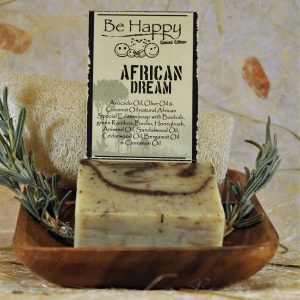
African Dream soap bar
R85 -
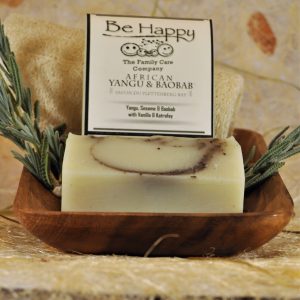
African Yangu + Baobab – Soap bar
R85 -
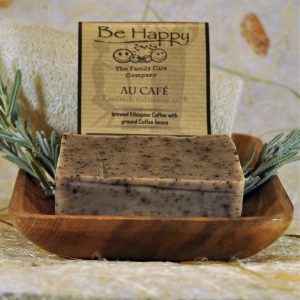
Au Café – Kitchen Soap bar – unscented
R60 -
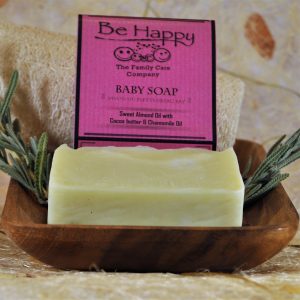
Baby Soap – unscented
R60 -
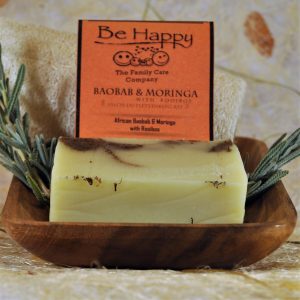
Baobab + Moringa – Soap bar
R85 -

Black Vanilla – Soap Bar
R60 -
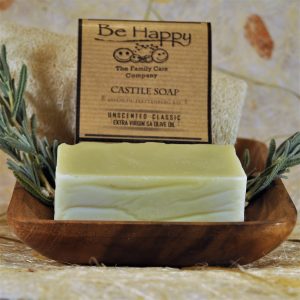
Castile Soap – unscented
R60 -
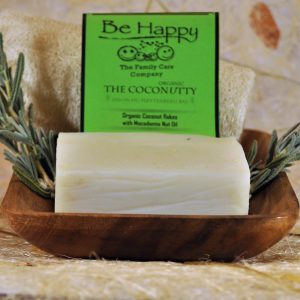
Coconutty – unscented
R60 -
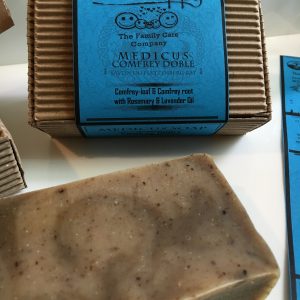
Comfrey Doble – Soap Bar
R85 -

Comfrey leaf – Soap Bar
R85 -
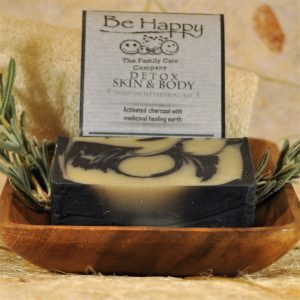
Detox – Skin + Body – Soap Bar
R85 -
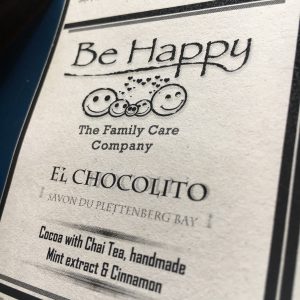
El Chocolito – Soap Bar
R85 -

Fynbos Helichrysum Doble – Soap Bar – unscented
R90 -

Fynbos Helichrysum Exfoliator – Soap Bar
R90 -
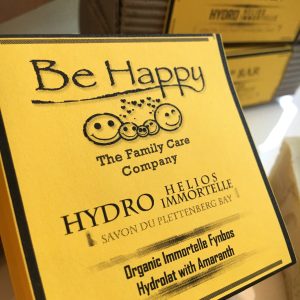
Fynbos Helichrysum Helios – Soap Bar
R90 -
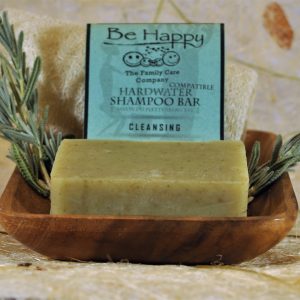
Hard water / Shampoo soap bar “cleansing”
R85 -

Hard water / Shampoo soap bar “soothing”
R85 -

Honeybush + Manketti – Soap Bar
R85 -

IHLOBO LIYEZA – soap bar
R85 -
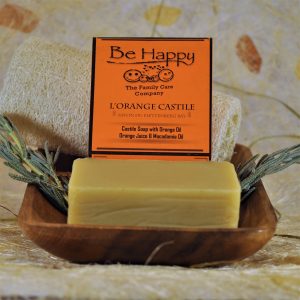
L’Orange Castile Soap bar
R60 -

La Chamomila – Soap Bar
R60 -

Lala Land “reloaded” – Soap bar
R60 -
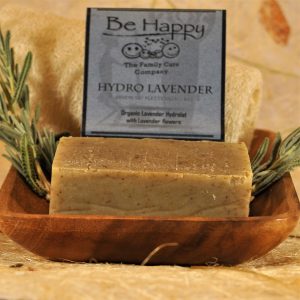
Lavender Distillate – Soap Bar – unscented
R90 -

Lavender Provence Soap bar
R60 -

Lemon + Nettle Shampoo soap bar
R85 -
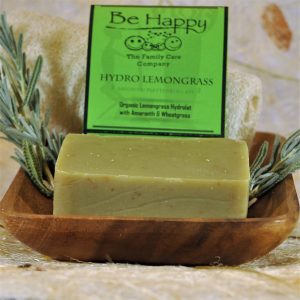
Lemongrass Distillate – Soap Bar
R90 -

Man – Lemongrass Shaving – Soap Bar
R85 -
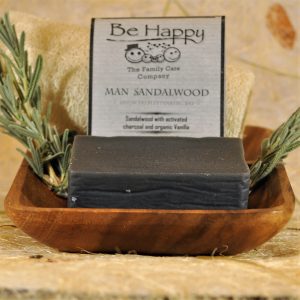
Man – Sandalwood Shaving – Soap Bar
R85 -

Manketti’s spots – Soap bar
R85 -
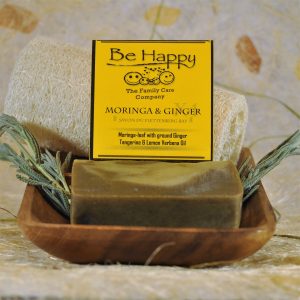
Moringa + Ginger – Soap Bar
R85 -
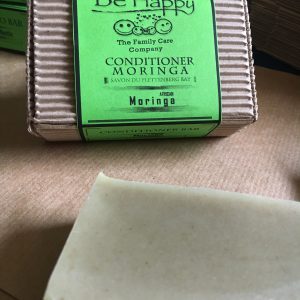
Moringa Conditioner – Soap Bar
R85 -
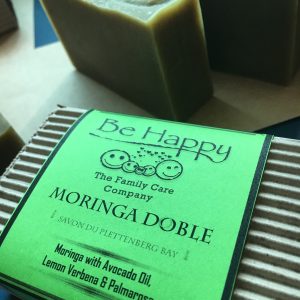
Moringa Doble – Soap Bar
R85 -
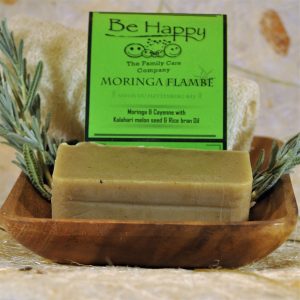
Moringa Flambé – Soap Bar
R85 -
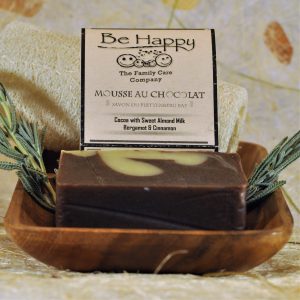
Mousse au chocolat “reloaded” – Soap bar
R85 -

Orange + Vanilla Castile Soap bar
R60 -

Pink Hibiscus – Soap Bar
R60 -

Rooibos Mystery Soap bar
R85 -
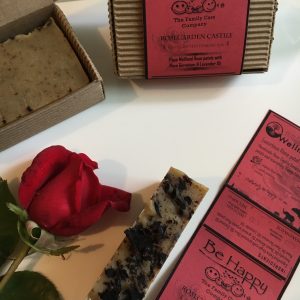
Rosegarden Soap bar
R60 -

Rosemary Distillate – Shampoo Soap Bar – unscented
R90 -
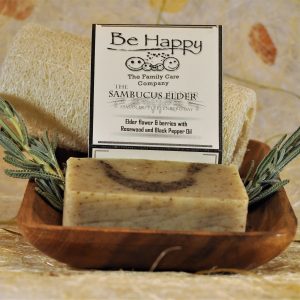
Sambucus Elder – Soap Bar
R85 -
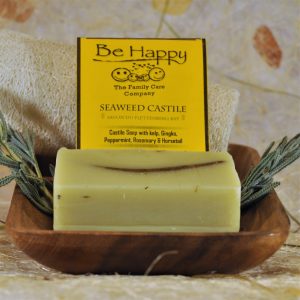
Seaweed Castile – Soap Bar
R60 -
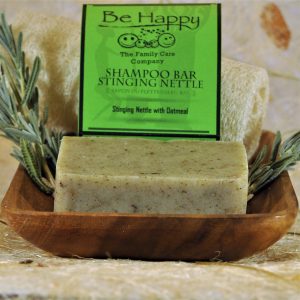
Stinging Nettle Shampoo soap bar
R85 -

Whispers of Summer – Soap Bar
R60
